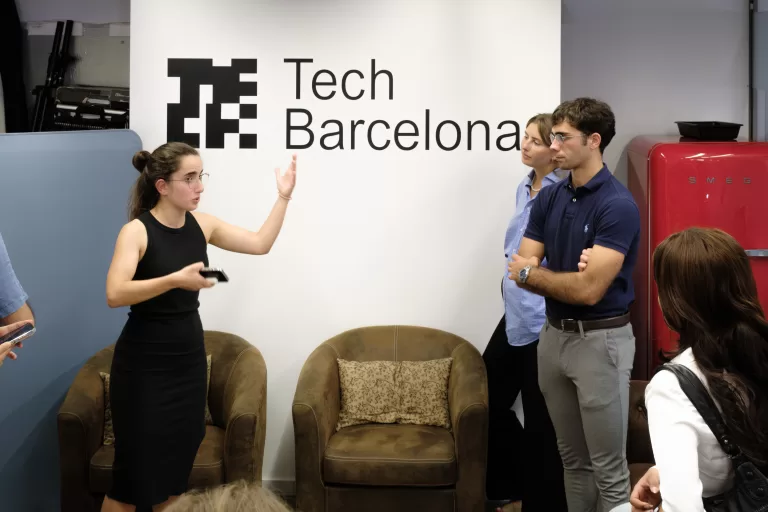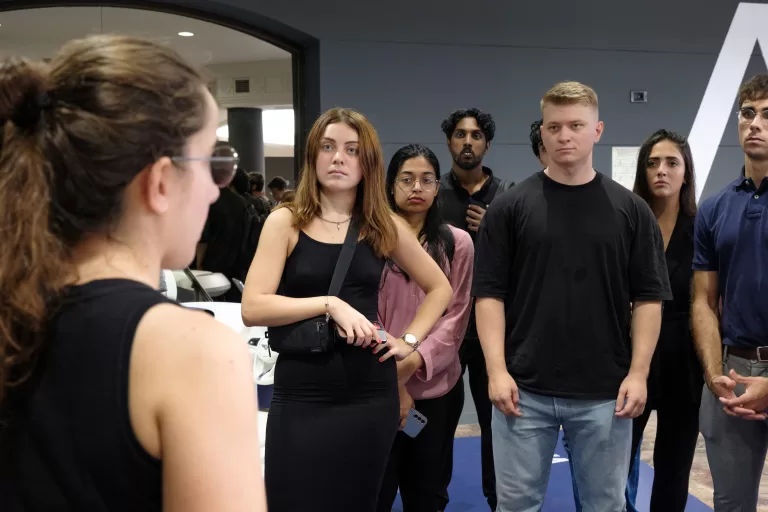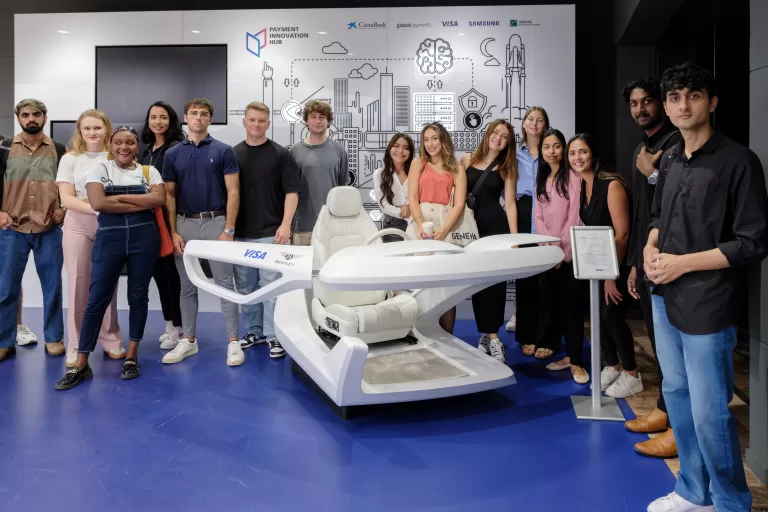Digital Age
AI. Machine Learning. Data Analytics. We live in a digital age, but how much is it impacting businesses? Let’s look at the figures.
Over 90% of business organizations are actively involved in various digital initiatives today. And 89% of all companies have either already embraced a digital-first business strategy or have imminent plans to do so. That’s according to research by Gartner (2022).
The research was part of a presentation by Alexandrina Pauceanu at the UNGA78 (United Nations General Assembly) Science Summit in New York last month.
Science Summit
As DBA and Research Program Manager at Geneva Business School, Alexandrina is an expert in business management. As well as being part of the organizing committee for the Science Summit, she spoke about the challenges, the solutions and the future of digital transformation. DBA student, Saltuk Iraklacin, was also there, speaking about innovation in family businesses.
As Alexandrina outlined in her speech, digital transformation and innovation leads to improved efficiency and effectiveness of processes, better customer satisfaction, enhanced decision-making, and gives organizations a competitive advantage in the global market.
In the Healthcare sector, Machine Learning and AI systems have played a pivotal role in enhancing disease diagnostics. Within Education, schools are using online teaching and digital classrooms, so that students can learn from anywhere. And in the world of Finance, there are new ways of banking and paying for things.
But digital transformation is not just about introducing new tools or technologies. It is a holistic process that requires strategic vision, user understanding, and organizational readiness. It is about fundamentally rethinking how an organization delivers value and staying relevant in an ever-evolving digital world. In Alexandrina’s words:
Innovation and digital transformation are no longer optional, but a necessity for survival in the globalized world. AI is not a replacement of humanity, it is a tool for humans.
Of course, there are many challenges in implementing digital transformation. Resistance to change, lack of skilled workforce, security concerns, legacy systems, and cost implications all have an impact.
In business and education, maybe the old systems don’t match the digital age. The cost of upgrading could be too much. And if staff do not have the necessary skills, they also need updating. Not to mention the fear of data leaks and lawsuits.
This is where innovation comes in. How can businesses and education institutes innovate and be part of the digital transformation that is defining our era? That is the kind of question we pose to our students at Geneva Business School as we prepare them for the future.
Digital Marketing
Across all our campuses, Bachelor and Master students can specialize in Digital Marketing. And the Entrepreneurship specialization has a strong focus on innovative strategies. Whatever course students undertake, they are provided with the hard and soft skills required to deal with digital transformation in different business sectors.
In this day and age, it is vital to understand digital law in any business. It is also important to understand what people want. In another finding from Alexandrina, personalization has become a cornerstone of modern customer engagement.
How can AI assist with this? Anyone can use ChatGPT, but if we all end up generating similar content, where is the personalization?
In the Digital Marketing course taught by our faculty member Luigi Ronsisvalle, he shows how AI can be used by digital marketers. As Luigi says:
From forecasting sales to predicting advertising performance to creative development, AI and machine learning is huge.
With multi-year experience in the Digital Paid Advertising world, Luigi is big on performance metrics and strong quantitative analytical skills. To get a feel for Luigi’s energy, knowledge and passion for the subject, watch his interview on our latest Behind the Minds episode. It’s all about the impact of AI, his experience in digital marketing and giving back to students.
With the specialization in Digital Marketing, the idea is that this can lead to jobs such as Digital Marketing Specialist, Social Media Strategist, and Digital Marketing Director. And we take practical steps to link education to real business opportunities.
Tech Barcelona
As our Master Program Manager in Barcelona, Carlos Hernández is responsible for establishing connections with the local business community.
With over 35 years of experience in professional services, Carlos also teaches subjects related to Consultancy, M&A, Finance, Accounting, and International Taxation.
As part of his Consultancy course, Carlos set up visits for Bachelor and Master students to Tech Barcelona, an independent private non-profit association that aims to empower Barcelona’s digital and tech ecosystem.
Through connections at Tech Barcelona, Carlos has arranged for guest speakers to come and talk to students about start-ups, attracting investment, revenue growth strategies and catalyzing innovation.
And during their visit to Tech Barcelona, students were encouraged to attend future networking events and seek opportunities as interns or even future investment for business ideas within tech. As Carlos put it:
To get investment, you need methodology, passion and ideas. Work on your networking skills, make contacts and make it personal.
Future Transformation
From the UN Science Summit to our Digital Marketing specialization to Tech Barcelona visits, we aim to put Geneva Business School at the forefront of Digital Transformation.
Merging academic research with courses run by real business leaders and networking opportunities, we want our students to be ready for a future that is already here. Here is how Alexandrina sees it:
As members of the global community, we should work together to foster an environment of innovation and digital transformation, for the betterment of humankind.

















